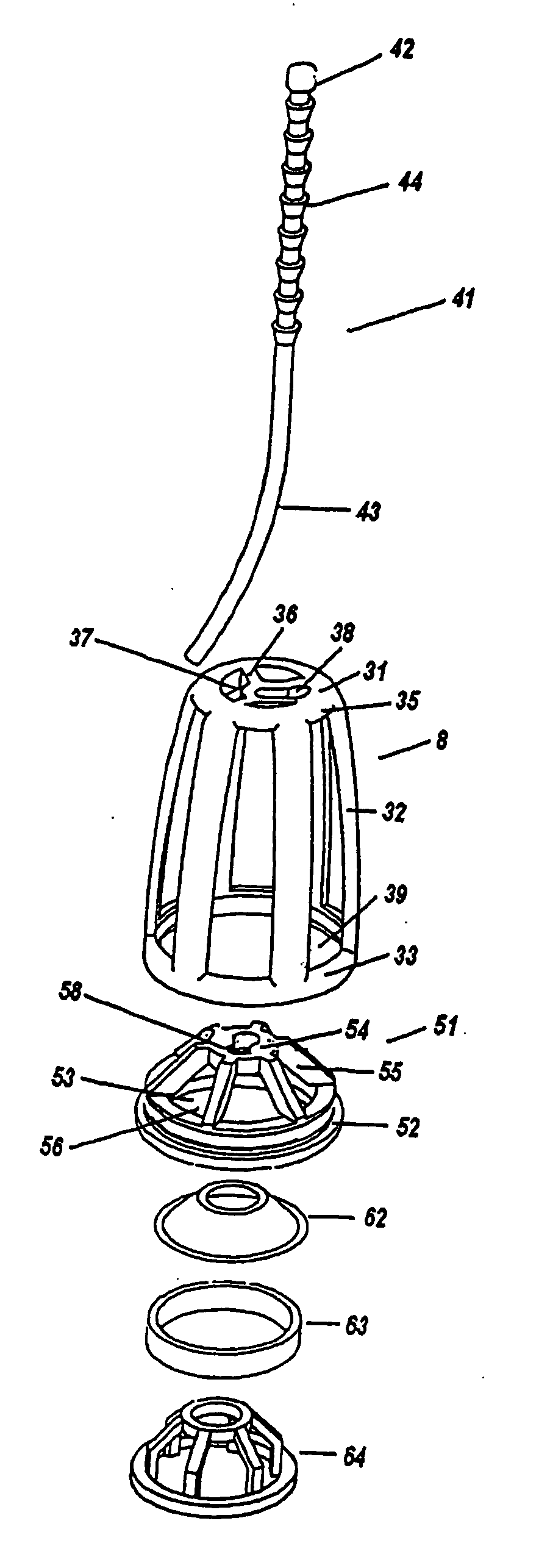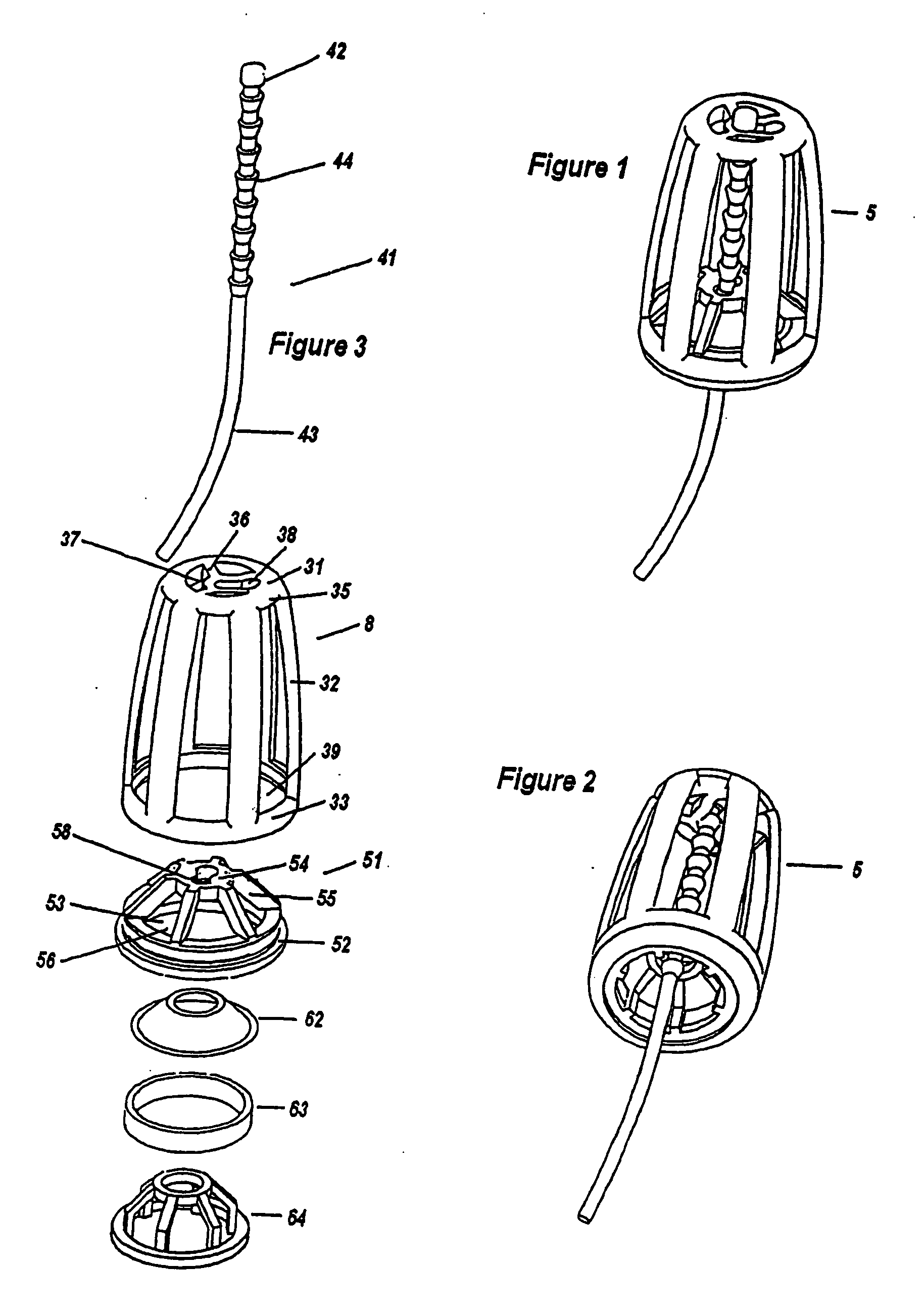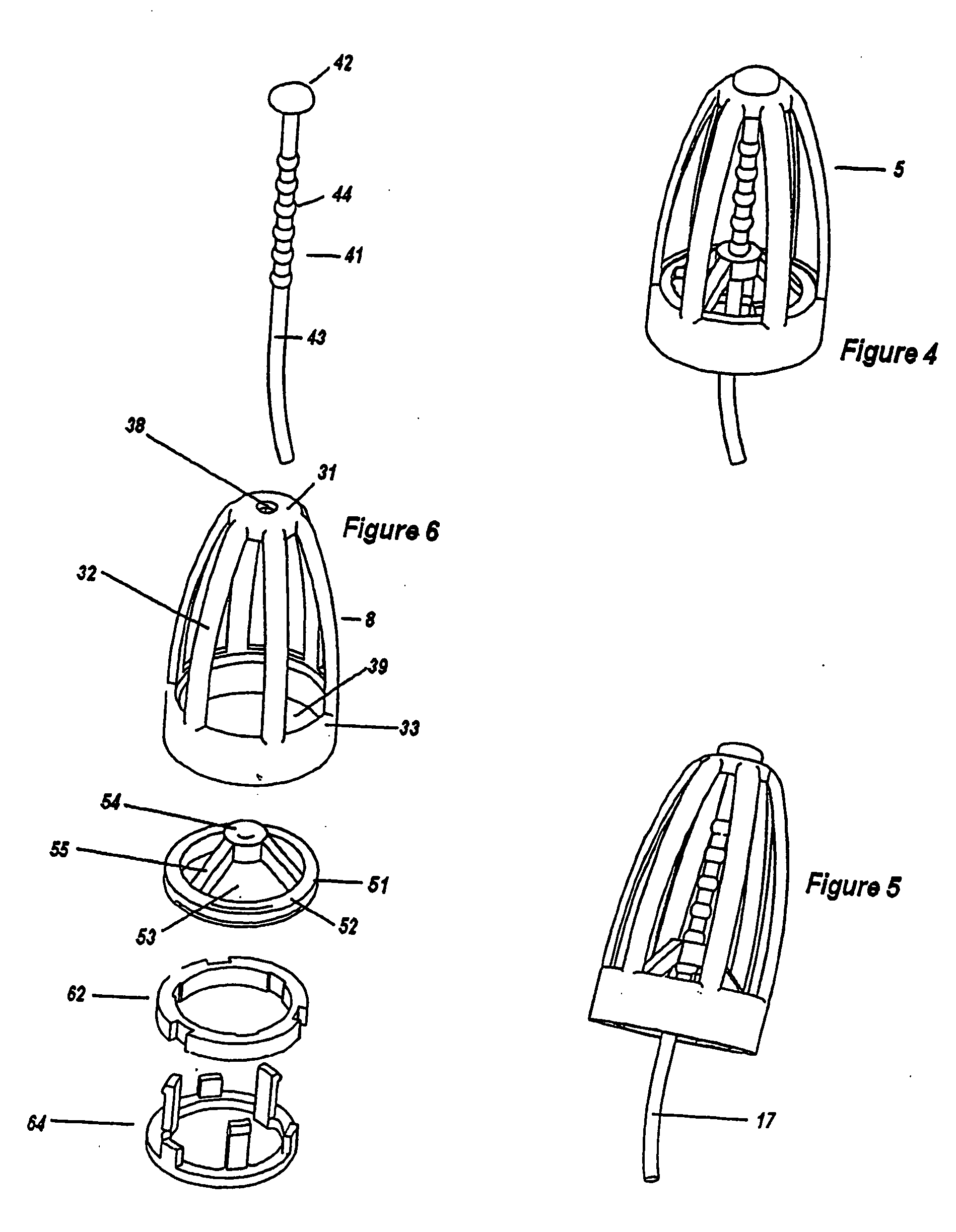Nasal cavity dilator
a dilator and nasal cavity technology, applied in the field of nasal cavity dilators, can solve the problems of increasing the risk of cardiac arrest, relatively high cost, and surgical procedures that are only temporarily successful, and achieve the effects of improving the safety of cardiac arres
- Summary
- Abstract
- Description
- Claims
- Application Information
AI Technical Summary
Benefits of technology
Problems solved by technology
Method used
Image
Examples
Embodiment Construction
[0105] Referring to FIGS. 1, 2 and 3 there is shown a nasal dilation device (5) insertable within a body cavity such as the nose. The nasal cavity dilation device is for urging the cavity towards an open condition. The device has a body (8) with a flexible wall structure formed by a plurality of longitudinally extending elongated ribs (32) extending between a top frame (31) and a bottom frame (33). The top frame (31) has an outer circular collar (35) with inner radial like struts (36) providing flow through openings (37) and a shaped opening forming a mounting opening (38). The bottom frame (33) is a circular waistband with a plurality of elongated spaced ribs (32) connected to the collar (35) and the waist band (33). The ribs at least are made from flexible plastics so that the wall structure has variable geometry. The sizing of the device is such that it is insertable within the nasal cavity.
[0106] The nasal dilation device (5) further includes an expansion means comprising a con...
PUM
 Login to View More
Login to View More Abstract
Description
Claims
Application Information
 Login to View More
Login to View More - R&D
- Intellectual Property
- Life Sciences
- Materials
- Tech Scout
- Unparalleled Data Quality
- Higher Quality Content
- 60% Fewer Hallucinations
Browse by: Latest US Patents, China's latest patents, Technical Efficacy Thesaurus, Application Domain, Technology Topic, Popular Technical Reports.
© 2025 PatSnap. All rights reserved.Legal|Privacy policy|Modern Slavery Act Transparency Statement|Sitemap|About US| Contact US: help@patsnap.com



